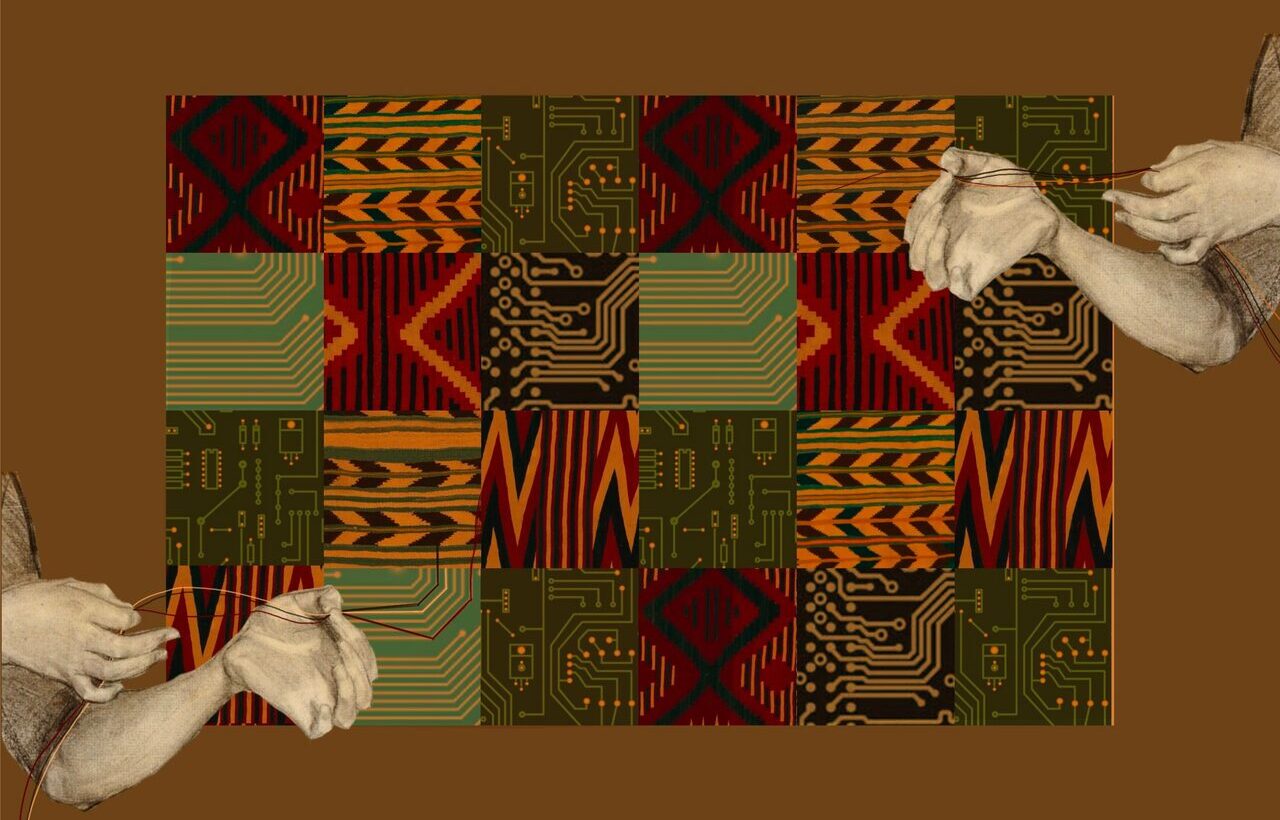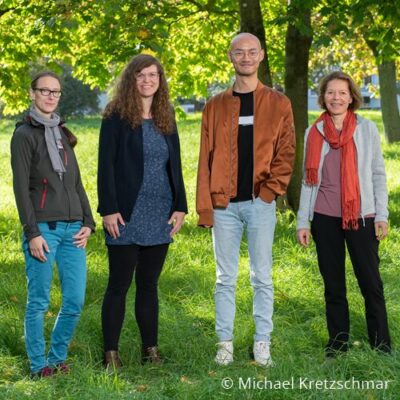The Invisible Faces of AI: Ghost Workers, Click Labor and Digital Exploitation
Title: The Invisible Faces of AI: Ghost Workers, Click Labor and Digital Exploitation
Date: Wednesday, October 29, 2025, at 6:30 p.m. / Inlet: 6:15 p.m.
Venue: Zentralkino Dresden, Kraftwerk Mitte
Between AI, Data and Digital Labor
Artificial intelligence can be understood as a toolbox of different technologies that are linked to far-reaching processes of social transformation. The term also functions as a projection surface for technological, social, and economic hopes – ranging from quasi-religious promises of salvation to the transhumanist utopia that humanity, through science and technology, could transcend its biological limits. In this vision of redemption, there is a dystopian moment in which a machine – most vividly embodied in the image of the Terminator – threatens to bring about the end of the world. We also learn from this that it is a mistake to anthropomorphize AI, that is, to approach it as if it were human. In reality, AI processes data, recognizes patterns, and is by no means a moral actor. What easily fades into the background and risks being forgotten: AI is the product of extensive human labor – often invisible, often exploited.
To do justice to this reality, Rainer Mühlhoff argues for a changed understanding of artificial intelligence. Instead of conceiving AI as an embodied entity or a mere vision of the future, its present and complex entanglement with human labor and social organization – beyond classical human-machine interactions – must be made visible. He therefore proposes to think of AI as “Human-Aided AI,” that is, as a networked human-machine system that neither exists nor functions without human involvement. (Mühlhoff, 2023, Die Macht der Daten)
Especially in the context of AI systems such as large language models, it becomes evident that technological processes are deeply embedded in social power relations. In their article Between Subjectivity and Imposition: Power Dynamics in Data Annotation for Computer Vision, Miceli, Schuessler, and Yang emphasize that the assignment of meaning to data is often portrayed as a purely technical task. Yet the systematic categorization of relevant information in datasets is not a neutral technical procedure, but an act of assigning meaning. In fact, it constitutes a powerful act with far-reaching effects on individuals and society. (Miceli, Schuessler & Yang, 2022, Between Subjectivity and Imposition) The Taylorist notion that intellectually demanding tasks in AI development can be separated from simple, fragmented work optimized through processes thus proves to be untenable.
The overarching concept of platform labor encompasses those services in the AI sector that are mediated or provided via web-based platforms. Various forms can be distinguished, such as click work, microwork, data work, or ghost work, although their boundaries are fluid and must be redefined depending on the context. These terms also point to precarious working conditions, the absence of rights, and the often invisible dimension of human labor that makes digital systems such as AI possible in the first place. Platform labor is, on a global scale, part of a neoliberal economy in which work is rendered insecure, de-bordered, and flexibilized.
The focus of our evening will therefore lie both on making visible and acknowledging the human component in “Human-Aided AIs,” as well as on the working and living realities of digital laborers.

Schedule and Inputs for The Invisible Faces of AI: Ghost Workers, Click Labor and Digital Exploitation
The event The Invisible Faces of AI: Ghost Workers, Click Labor and Digital Exploitation offers the opportunity to jointly explore various aspects of this complex field of tension. To enable diverse perspectives on the topic, we have invited people who engage with it from different professional, political, and artistic angles. The ceremonial opening of our event on the topic of click working will be introduced by Birte Platow with a welcome address.
To begin, we will watch the approximately 20-minute film Ghost Workers by Lisette Olsthoorn. Ghost Workers is a cinematic research project created in collaboration with Prof. Claartje ter Hoeven. The film sheds light on the often hidden human labor that is essential for artificial intelligence to function at all. Afterwards, the filmmaker herself will provide us with insights behind the scenes of her work.
We are very pleased that Tanja Carstensen and Adio Dinika will first share their perspectives and contributions on the topic. Following this, we will open the floor for a joint discussion with the audience.
The evening will be moderated by Vanessa Kuhfs, who contributes both artistic and academic perspectives in her work at ScaDS.AI Dresden/Leipzig. She has long been engaged with the topic of click working and has helped shape this event through numerous conversations, discussions, and reflections.
Speakers
Prof. Birte Platow holds the Chair of Religious Education (Protestant) at Dresden University of Technology, is a member of the Board of the Center for Scalable Data Analytics and Artificial Intelligence, and serves as Area Lead of its research division of Responsible AI. With her research on theology and artificial intelligence as well as on the ethics of technology, she brings an interdisciplinary perspective to the discussion on digital forms of labor and the associated ethical challenges. Her focus on the future of education and ethical education highlights the necessity of developing new competencies and values in dealing with AI and digital work. In addition, her research contributes to fostering respectful dialogue across diverse working contexts.
Lisette Olsthoorn practices what is known as cinematic research, a hybrid form combining film and innovative scholarship. As the director and creator of Ghost Workers, she powerfully brings this subject to the screen. Her current project, UBER: THE CONVERSATION, is an experimental documentary that explores the working conditions of Uber drivers through reenactments and collaborative working methods.
Prof. Tanja Carstensen holds the Chair of the Professorship of Sociology with Focus on Work, Economy, and Organization at Chemnitz University of Technology. Her research areas include gender, diversity and intersectionality in the context of digitalization, the transformation of work, and technology discourses. As a sociologist, she investigates the interrelations between digitalization and labor, particularly the effects of digital technologies on working conditions and the often-invisible people behind AI systems. A key area of her work is click work and platform labor.
Dr. Adio-Adet Dinika is a political scientist, author, and co-founder of the community-based research project Data Workers’ Inquiry, in which data workers organize as community researchers to initiate their own investigations into their workplaces (DAIR, 2022). The project builds on traditions of participatory research (Stoeker, 2013; Jason & Glenwick, 2016), enabling data workers to shape research questions and directions according to their needs and with the goal of building power in the workplace. Dinika specializes in the political economy of AI labor, with a focus on the Global South. His research explores invisible AI work – such as data annotation, content moderation, and algorithmic management – as well as the power dynamics behind digital transformation. Based on interviews with 55 platform workers in transport, domestic work, IT, and creative industries in Rwanda, Zimbabwe, and South Africa, he has developed an empirical typology of the diverse experiences of these workers.



